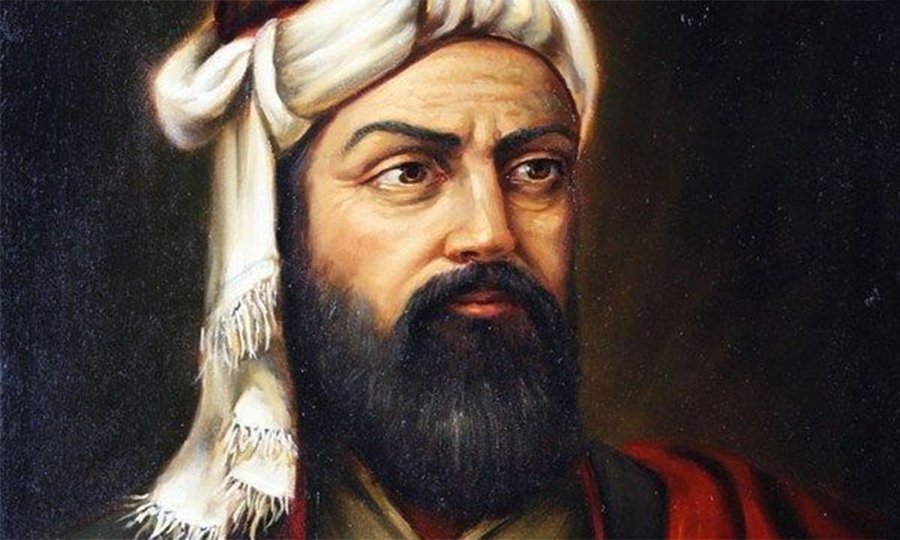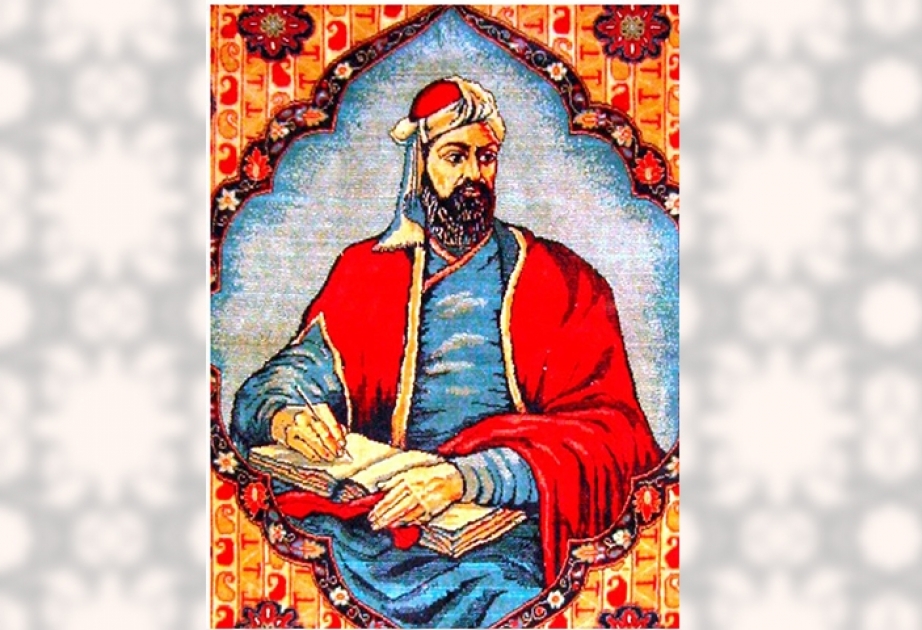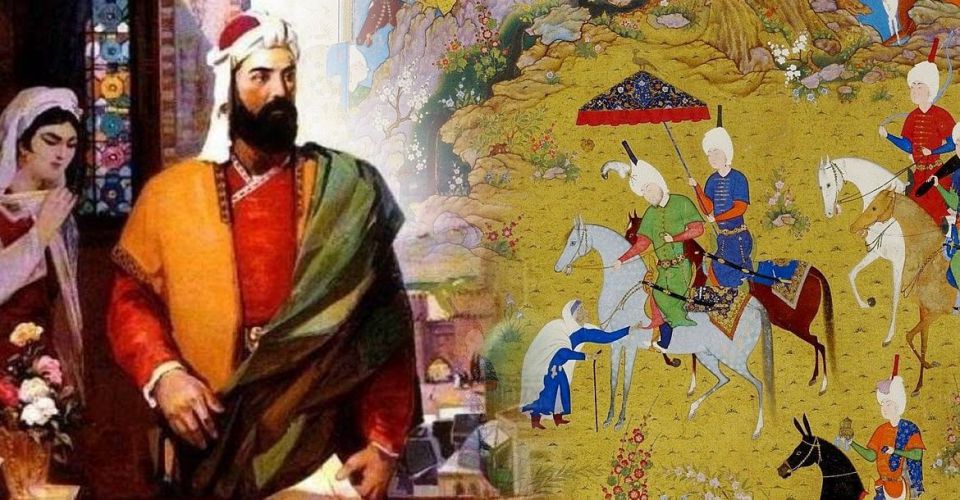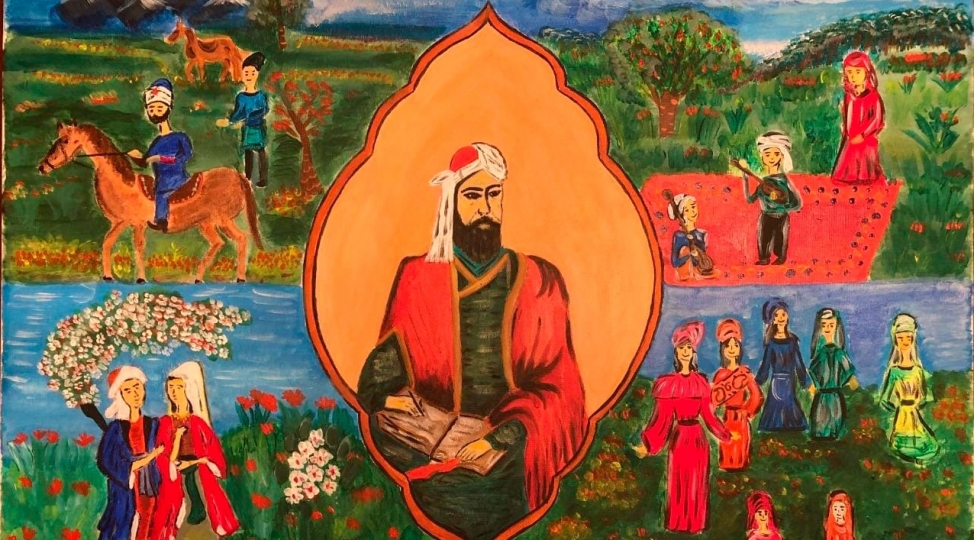Legacy of Nizami Ganjavi: Azerbaijani Poet and Literary Mastermind
 Nizami Ganjavi, also known as Nizami Ganje'i, was a 12th-century Persian poet who made significant contributions to Persian literature. His works, characterized by their depth of philosophical insight, romanticism, and lyrical beauty, continue to inspire readers and scholars across cultures even today. In this essay, we will delve into the life of Nizami Ganjavi, explore some of his major works, analyze their themes and literary significance, and examine his enduring legacy.
Nizami Ganjavi, also known as Nizami Ganje'i, was a 12th-century Persian poet who made significant contributions to Persian literature. His works, characterized by their depth of philosophical insight, romanticism, and lyrical beauty, continue to inspire readers and scholars across cultures even today. In this essay, we will delve into the life of Nizami Ganjavi, explore some of his major works, analyze their themes and literary significance, and examine his enduring legacy.
Nizami Ganjavi was born in the city of Ganja, located in present-day Azerbaijan, around 1141 CE. Although details about his early life are scarce, it is believed that he received an excellent education, which is evident in the sophistication of his writings. Nizami lived during a time of great cultural flourishing in the Persian-speaking world, particularly under the patronage of various Turkic dynasties. One of Nizami's most renowned works is the "Khosrow and Shirin" (Persian: خسرو و شیرین), an epic romance narrative composed in masnavi (rhymed couplets). The poem tells the story of the love between Khosrow, the Sasanian king, and Shirin, an Armenian princess. Through richly detailed descriptions and intricate plot developments, Nizami weaves a captivating tale of love, longing, and fate. The poem explores themes such as the power of love to transcend social barriers, the clash between duty and desire, and the inevitability of destiny.
One of Nizami's most renowned works is the "Khosrow and Shirin" (Persian: خسرو و شیرین), an epic romance narrative composed in masnavi (rhymed couplets). The poem tells the story of the love between Khosrow, the Sasanian king, and Shirin, an Armenian princess. Through richly detailed descriptions and intricate plot developments, Nizami weaves a captivating tale of love, longing, and fate. The poem explores themes such as the power of love to transcend social barriers, the clash between duty and desire, and the inevitability of destiny.
Another masterpiece by Nizami is "Layla and Majnun" (Persian: لیلی و مجنون), which is based on the tragic love story of Qais ibn al-Mulawwah (Majnun) and his beloved Layla. This narrative poem is considered one of the greatest examples of classical Persian literature and has inspired countless adaptations and interpretations across different cultures. Nizami's portrayal of Majnun's madness as a symbol of divine intoxication and his exploration of the themes of love, madness, and spiritual longing have earned the poem a timeless appeal.
In addition to these works, Nizami is also known for his "Haft Paykar" (Seven Beauties), "Eskandar-nameh" (The Book of Alexander), and "Makhzan al-Asrar" (The Treasury of Mysteries), each of which explores various aspects of human existence, morality, and spirituality. "Haft Paykar" is a collection of seven interconnected stories, each depicting the romance between a Persian prince and a princess from a different cultural background. Through these tales, Nizami explores themes such as the nature of kingship, the virtues of chivalry, and the importance of wisdom and justice. The "Eskandar-nameh" is a poetic retelling of the adventures of Alexander the Great, drawing on both historical sources and mythical elements. Nizami portrays Alexander as a wise and just ruler who embarks on a quest for knowledge and enlightenment. The poem reflects Nizami's fascination with Greek culture and his interest in exploring universal themes of heroism, conquest, and the pursuit of wisdom.
The "Eskandar-nameh" is a poetic retelling of the adventures of Alexander the Great, drawing on both historical sources and mythical elements. Nizami portrays Alexander as a wise and just ruler who embarks on a quest for knowledge and enlightenment. The poem reflects Nizami's fascination with Greek culture and his interest in exploring universal themes of heroism, conquest, and the pursuit of wisdom.
"Makhzan al-Asrar" is a didactic work that combines poetry with moral and philosophical reflections. In this collection, Nizami explores themes such as the nature of God, the mysteries of existence, and the human quest for enlightenment. Drawing on Sufi and Neoplatonic influences, Nizami invites readers to contemplate the deeper meanings of life and to seek spiritual fulfillment. Nizami Ganjavi's works have had a profound impact on Persian literature and culture, inspiring generations of poets, writers, and scholars. His lyrical style, profound insights, and nuanced exploration of human emotions continue to resonate with audiences around the world. Moreover, Nizami's emphasis on love as a transformative and unifying force has made his works timeless classics that speak to the universal human experience.
Nizami Ganjavi's works have had a profound impact on Persian literature and culture, inspiring generations of poets, writers, and scholars. His lyrical style, profound insights, and nuanced exploration of human emotions continue to resonate with audiences around the world. Moreover, Nizami's emphasis on love as a transformative and unifying force has made his works timeless classics that speak to the universal human experience.
Nizami Ganjavi stands as one of the greatest poets in the history of Persian literature. His masterful storytelling, profound philosophical insights, and enduring themes of love, destiny, and spirituality continue to captivate readers centuries after his death. Through his works, Nizami invites us to explore the mysteries of existence, contemplate the nature of love and longing, and strive for a deeper understanding of ourselves and the world around us.
Furthermore, Nizami Ganjavi's influence extends beyond the realm of literature. His works have left an indelible mark on the cultural, artistic, and intellectual landscape of the Persian-speaking world and beyond. Artists, musicians, and filmmakers have drawn inspiration from his stories, adapting them into various art forms and mediums. For example, the story of "Layla and Majnun" has been reimagined in music, dance, theater, and visual arts, with each adaptation offering a unique interpretation of the timeless tale of star-crossed lovers.
Moreover, Nizami's philosophical and spiritual insights have resonated deeply with Sufi mystics and philosophers, who have found in his works a rich source of inspiration and contemplation. The themes of divine love, spiritual longing, and the quest for union with the divine are central to Sufi poetry and mysticism, and Nizami's poetry occupies a significant place within this tradition. His portrayal of love as a metaphor for the soul's yearning for God has earned him a revered status among Sufi poets and thinkers. In addition to his literary and spiritual legacy, Nizami Ganjavi's works have also played a role in shaping the cultural identity of Azerbaijan, his birthplace. His poems are celebrated as national treasures, and his mausoleum in Ganja is a site of pilgrimage and reverence for lovers of literature and poetry. Nizami's contribution to the preservation and promotion of the Persian language and culture in Azerbaijan is widely acknowledged, and his works continue to be studied and cherished as part of the country's cultural heritage.
In addition to his literary and spiritual legacy, Nizami Ganjavi's works have also played a role in shaping the cultural identity of Azerbaijan, his birthplace. His poems are celebrated as national treasures, and his mausoleum in Ganja is a site of pilgrimage and reverence for lovers of literature and poetry. Nizami's contribution to the preservation and promotion of the Persian language and culture in Azerbaijan is widely acknowledged, and his works continue to be studied and cherished as part of the country's cultural heritage.
Furthermore, Nizami's impact transcends national and linguistic boundaries, as his works have been translated into numerous languages and have been appreciated by readers around the world. His universal themes of love, passion, and spiritual enlightenment resonate with people of diverse cultures and backgrounds, reaffirming the power of literature to bridge divides and foster understanding among different communities. In conclusion, Nizami Ganjavi's enduring legacy lies not only in his timeless poetry but also in the profound impact that his works have had on literature, culture, and spirituality. Through his exploration of love, destiny, and the human quest for meaning, Nizami invites readers to embark on a journey of self-discovery and contemplation. His poetry continues to inspire and enlighten audiences, serving as a testament to the enduring power of the written word to touch hearts and minds across generations and borders.
In conclusion, Nizami Ganjavi's enduring legacy lies not only in his timeless poetry but also in the profound impact that his works have had on literature, culture, and spirituality. Through his exploration of love, destiny, and the human quest for meaning, Nizami invites readers to embark on a journey of self-discovery and contemplation. His poetry continues to inspire and enlighten audiences, serving as a testament to the enduring power of the written word to touch hearts and minds across generations and borders.






















